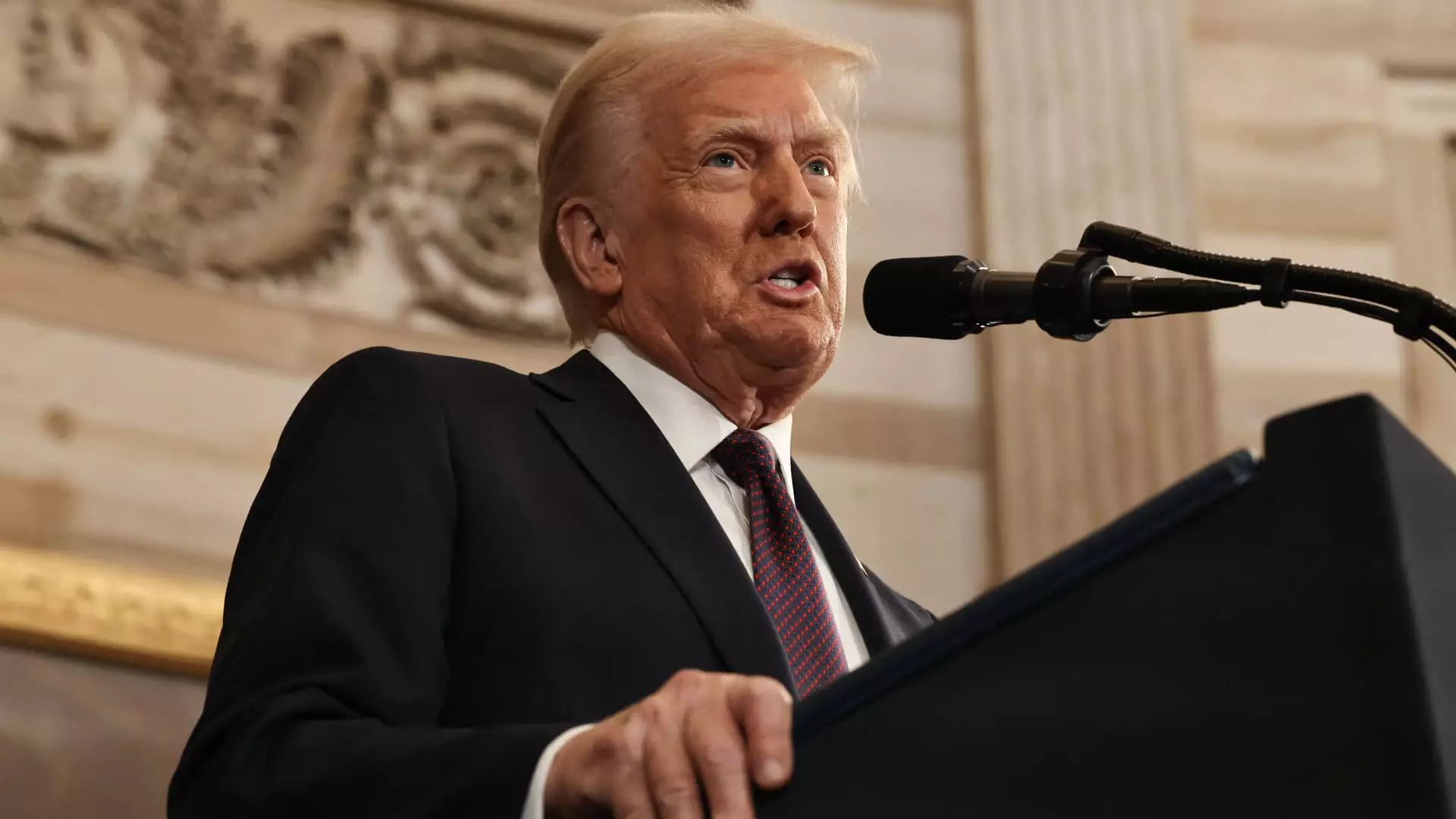In recent months, President Donald Trump has paraded his vision of being a peacemaker and a unifier on the global stage. However, his recent military actions against Iran starkly contradict those lofty ambitions, raising pertinent questions about his credibility. When he took the oath of office, he vowed that a hallmark of his presidency would be measured not just in victories, but in diplomatic resolutions. Yet, with last night’s unprecedented airstrikes hitting Iran’s nuclear sites in Fordo, Natanz, and Isfahan, Trump’s lavish assertions of unity and peace have been dashed, revealing a stark collision with reality.
Trump’s declarations have always echoed the language of diplomacy—a rhetoric that now seems hollow against the backdrop of decisive military action. He promised that his administration would shield the United States from conflict, stating, “We will measure our success not only by the battles we win but also by the wars that we end.” How then, do we reconcile such powerful assertions with the grim reality of American bombs raining down on Iranian soil? This blatant contradiction paints Trump not as a harbinger of peace but as a catalyst for chaos.
A Dangerous Precedent
The escalation of military engagement signifies a dramatic departure from Trump’s earlier pledges. Throughout his 2024 campaign, he reiterated his commitment to avert World War III and maintain stability in the Middle East. Now, with U.S. military involvement, the very notion of “preventing chaos” rings painfully ironic. Just days prior to the airstrikes, Trump indicated that diplomacy may still be an option. His sudden about-face reveals a troubling mindset: that the rhetoric of peace can be easily subverted by military action. By undermining his own promises, he has sowed doubt not only among his supporters but also internationally, about America’s commitment to resolving global tensions peacefully.
Moreover, Trump’s braggadocio about “stopping the chaos in the Middle East” has, through this attack, become part of the chaos itself. The airstrikes represent a severe miscalculation, persuading Iran that it must now respond with equal ferocity. This tit-for-tat engagement further jeopardizes any remaining avenues for peaceful negotiation. Make no mistake; Trump has handled a volatile situation with the subtlety of a bull in a china shop.
Foreboding Implications
As the dust settles in the wake of the attack, the ramifications emerge starkly. Casualties reported from Iranian state media speak to the tragic human toll of such aggressive maneuvers. We find ourselves grappling with the harsh realities of conflict, which Trump once vowed to mitigate. By abandoning his earlier proclamations of preference for diplomacy and engaging in military action, Trump has opened a Pandora’s box that could engulf the U.S. in a protracted conflict—with unpredictable consequences.
Moreover, the ideological underpinning of America’s foreign policy is under siege. Critics argue that the U.S.’ unilateral military actions only serve to alienate potential allies and embolden adversaries. The repercussions of yesterday’s strikes may echo through various geopolitics sectors, as countries reassess their alliances and dealings with the U.S. in fear of being the next target.
The acquiescence to military solutions also echoes the failures of past administrations, casting doubt on the authenticity of Trump’s earlier assertions. By revisiting a war-hungry stance, Trump risks placing America back within a cycle of violence that places no value on the hard-fought lessons of diplomacy. This cyclical pattern of aggression only compounds the suffering, making the dream of peace increasingly elusive.
A Crisis of Integrity
Ultimately, Trump’s credibility hangs in the balance. His ambitious narrative as a peacemaker is now tainted, tarnished by the reality of his military choices. The dichotomy between his rhetoric and actions not only questions his character but impacts the America’s image on the global stage. Allies may feel betrayed, while adversaries may welcome the engagement as an opportunity to exploit perceived weakness.
Trump’s recent military escalation has transformed his promises of harmony into a haunting spectacle of broken vows. The false sheen of unity he attempted to cultivate during his presidency is now stripped away, leaving an unsettling question: Can a leader who wields military force as an instrument for peace truly be trusted? Such actions beg the answer that, now more than ever, American foreign policy needs a recalibration back toward diplomacy and dialogue if we sincerely aspire to create a lasting legacy of peace.

Leave a Reply